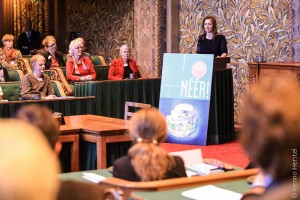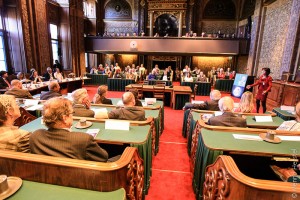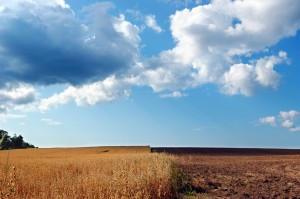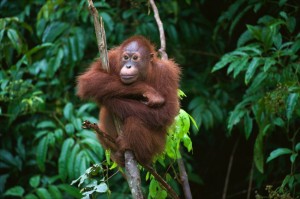Nieuw Worldlog Marianne Thieme
Vorige week heb ik mijn nieuwe wetenschapsbundel met de titel Méér! gepresenteerd in de Eerste Kamer. Wetenschappers die hun bijdrage leverden aan de nieuwe bundel, gaven een reeks van analyses die ervoor pleiten de grenzen van de aarde als uitgangspunt te kiezen voor ons handelen. Méér! is een leidraad voor politici, beleidsmakers en burgers om een radicale omslag mogelijk te maken naar andere, duurzame beleidskeuzes.
In Méér! bundel ik wetenschappelijke inzichten die de crises van dit moment in kaart brengen en in samenhang helpen oplossen. De bijdragen komen van onafhankelijke wetenschappers die zich zorgen maken over de toekomst van mens, dier, natuur en milieu en vanuit diverse invalshoeken werkbare oplossingen voor de crises bepleiten.
Dit is de informatie op de achterflap:
Méér! is het kernthema geworden van onze samenleving: meer van alles en meer dan er is. In de afgelopen decennia van ongekende welvaart heeft het geloof postgevat dat de groei van onze economie niet alleen grenzeloos is, maar ook een voorwaarde is voor geluk en welvaart. Waar economie ooit de wetenschap van het voortbrengen en verdelen van schaarse goederen en middelen was, is inmiddels vrijwel exclusief aandacht voor geld en monetaire vraagstukken. De systeemcrisis die zich in 2008 aandiende als een bankencrisis, manifesteert zich nu als monetaire crisis. Én het is duidelijk dat we daarnaast de biodiversiteitscrisis hebben, de klimaatcrisis, de wereldvoedselcrisis en andere schaarste problemen die welvaart en welzijn tot in de kern bedreigen.
We hebben ons ingezet voor duurzame landbouw deze week. Want duurzame landbouw mag niet gehinderd worden door nieuwe eisen die de Europese Unie stelt aan de registratie van plantenrassen. Gelukkig steunde de Tweede Kamer unaniem een motie van ons!
De Europese Commissie heeft een voorstel gedaan waarin de regels over de productie van en handel in zaden worden veranderd. Daarin worden strenge eisen gesteld aan de zaden die gebruikt mogen worden in de landbouw. Alle plantenrassen moeten volgens dit voorstel geregistreerd worden, en registratie kost veel geld. Het Europese voorstel heeft voor veel onrust gezorgd bij stadslandbouwers, moestuinders en bij biologische boeren en veredelaars. Zij vreesden dat zij alleen nog geregistreerde zaden mochten gebruiken, en dat het ruilen van zaden niet meer zou zijn toegestaan.
In het definitieve voorstel bleek dat particulieren niet onder de nieuwe regels zouden vallen. Ook kleine zaadveredelaars en traditionele zaadrassen zouden niet aan alle nieuwe registratievoorschriften te hoeven voldoen. Wij vinden toch dat de registratievoorschriften in het voorstel te streng zijn, en dat zij een belemmering zouden kunnen vormen voor biologische landbouw.
Daarom hebben wij alsnog een motie ingediend waarin we de regering oproepen om in de onderhandelingen over het voorstel van de Europese Commissie de belangen van kleine veredelaars en de biologische landbouw voorop te stellen en deze belangen te beschermen.
Slecht nieuws voor het oerwoud in Brazilië. Uit onderzoek komt naar voren dat ontbossing in Brazilië leidt tot kleinere boomzaden.
Teken hier om 1,2 miljoen hectare leefgebied van de Orang Oetan op Sumatra te redden. Dit gebied is in direct gevaar van de palmolie-industrie.
Tot volgende week! Marianne
Last week, I presented my new scientific volume titled More! to the Upper House. Scientists who contributed to the new volume, presented a range of analyses which urge us to base our acts on the borders of the earth. More! is a guideline for politicians, policymakers and civilians to make a radical change to other and sustainable policy choices.
In More! I have compiled scientific insights which analyse the current crises and help solve them in conjunction with each other. The contributions come from independent scientists who are concerned with the future of humans, animals, nature and the environment, and advocate practicable solutions for the crises from various angles.
This is the information on the back cover:
More! has become the key theme of our community: more of everything and more of what is available. During the past decade of unprecedented wealth, we started to believe that the growth of our economy is not only unlimited, but also a condition for happiness and wealth. Where economy was first the science of production and distribution of scarce goods and means, it is now almost exclusively about money and monetary issues. The system crisis that first presented itself in 2008 as a banking crisis, is now manifesting itself as a monetary crisis. And additionally, there clearly is a biodiversity crisis, a climate crisis, a world food crisis and other scarcity issues, which seriously threaten our welfare and wealth.
We made an effort for sustainable agriculture this week. Because sustainable agriculture should not be hindered by new regulations on the registration of plant varieties, set by the European Union. Fortunately, the Upper House unanimously seconded the motion!
The European Commission made a proposal to amend legislation on the production and marketing of seeds. It contains strict rules on seeds that are permitted to be used in agriculture. In accordance with the proposal all plant varieties must be registered, but registrations are expensive. The European proposal has caused a great deal of unrest among city farmers, vegetable gardeners, and among organic farmers and breeders. They feared that they would be permitted to only use registered seeds, and that the exchange of seeds would be disallowed.
The definitive proposal showed that the new legislation does not apply to private persons. Small seed breeders and traditional seed varieties would not have to comply with any new registration rules. We believe that the registration rules in the proposal are too strict, and could be an obstruction for organic farmers.
That is why the Party for the Animals called for a motion, requesting the government to prioritize the interests of small breeders and organic farmers in the negotiations about the European Commission’s proposal, and to protect their interests.
Bad news for the rainforest in Brazil. Research suggests that rainforest deforestation in Brazil leads to seed shrinkage.
Sign here to save 1.2 million acres of habitat of the orangutans on Sumatra. This area is endangered by the palm oil industry.
Until next week! Marianne



